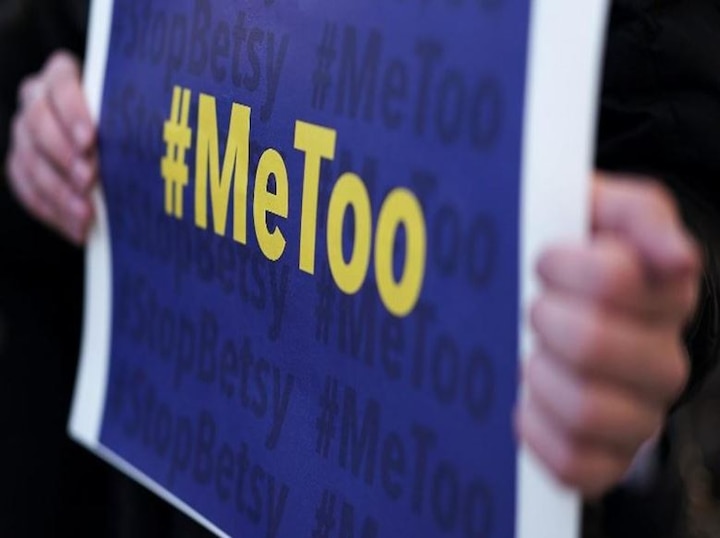Explorer
The Blind Spot of #MeToo in India
Is Abuse of Power the Only Explanation for it?

Notwithstanding the eardrums-tearing noise that #MeToo’s supporters created over the last two months, their arguments have had key silences.
Notwithstanding the eardrums-tearing noise that #MeToo’s supporters created over the last two months, their arguments have had key silences. When purported high-profile harassers began getting called out, they were perceived as people who abused their professional positions and their past work organisations were arraigned of eroding ‘due process’ systems to check sexual harassment at the workplace. It was a fair assessment but an incomplete one as it examined only a part of the story. In their rage to vilify the purported predators, a chunk of the liberal and feminist commentators online, saw them solely as sex and power abusers. This line of enquiry needed some qualification for it dehumanised the harasser and masked a deeper, more fundamental problem: Most supporters misread symptoms (like abuse of power) for causes (like sexual frustration).
A talking point missing in the #MeToo clamour in India has been about carnal knowledge and sexual dissatisfaction. #MeToo’s supporters and critics have not spoken upon it. And because of that, in their attempts to make sense of what has happened, they have hitherto failed in humanising harassers, while justifiably lending their support to victims. Both here and in the West, this point has gone somewhat unattended. It proves that partisanship has marked the fuming #MeToo monologues: The movement is yet to become a conversation with many-layered views. Thus, many supporters of #MeToo have only half-read its myriad social and psychological dimensions.
Consider the sexual frustration angle. Though there have been some social and cultural changes, for average humans of the Indian subcontinent, sex is impossible to get without undergoing marriage, which usually happens early. Most other forms of gaining intimacy don’t have social sanction in the extant orthodoxy. For many people in the region acquiring carnal experience before marriage is a feat. Although people of the subcontinent constitute a huge mass of the world’s population, they also live in a highly iniquitous society that has woeful human development indicators. This means there are in-built curbs on individual freedoms and accessing them entails lifelong negotiation and conflict with social norms.
With such a huge population in the region, one assumes gaining carnal experience would be easy. It isn’t. And that’s the painful paradox for most women and men: So many people and so little sex without marriage coming in the way. (Of course, prostitution and infidelity obtain, but they don’t have social sanction.) To meet one’s physical desire one has to embrace the social institution of matrimony and genuflect to tradition.
Thus, there seem to be many conditions established for mass-scale sexual dissatisfaction to grow. If humans are sexually angry because they are sexually denied, what are the chances some individuals may not become creeps? Therefore, are harassers socially made or are they born like that? What is society’s role and responsibility in understanding the making of a sexual predator? In their bid to slam the abusers, feminists and liberals, lost out on this crucial arc of scrutiny.
Moreover, in this kind of a sad and shuttered environment, obtaining intimacy moves from being something about bodily pleasure to an obstacle. In the personal and perhaps prejudiced opinion of this writer, subcontinental humans have mainly two discrete ways of understanding sexual mores: Sex-as-pleasure and Sex-as-problem.
Sex-as-pleasure is a sign of freedom: It is open-ended, marked by a sense of discovery, surprise, beauty and uncertainty. Sex-as-obstacle is a sign of un-freedom: It is finite, boxed, labelled and mechanical, like a problem needing solving. The latter definition is closer to the experience of subcontinental humans than the former.
While taking advantage of their powerful organisational positions, a number of the purported predators - most notably the man who was an MoS and resigned - have allegedly behaved in ways that exhibit the sex-as-a-problem paradigm. Some others too have exhibited signs of sexual frustration.
That #MeToo this isn’t being read as an issue of sexual frustration as much as abuse of power and due process is one of the blind spots of the ‘movement’. Is it possible that the former is leading to the latter? If recent surveys about sexual health conducted by the National Family Health Survey of India are to be believed, India is unprepared to handle its sexual revolution with such a huge young population hemmed in by orthodoxy but information-revolutionised by smartphones.
In not seeing sex as a problem and subsequently, sexual frustration as a social condition needing treatment, #MeToo’s supporters have presented a one-sided argument of the ‘movement’. At the moment, their discourse has made for progressive-seeming ‘politics’, but also poor social science. One hopes that approach gets corrected soon.
Rahul Jayaram
(The writer teaches at the Jindal School of Liberal Arts & Humanities)
Disclaimer: The opinions, beliefs and views expressed by the various authors and forum participants on this website are personal and do not reflect the opinions, beliefs and views of ABP News Network Pvt Ltd.
Follow Blog News on ABP Live for more latest stories and trending topics. Watch breaking news and top headlines online on ABP News LIVE TV
View More


























